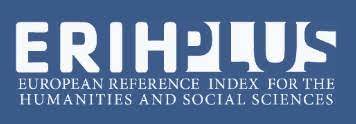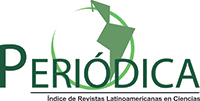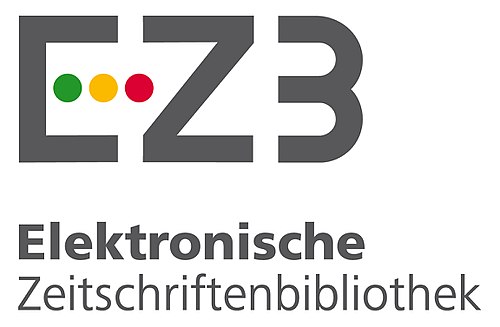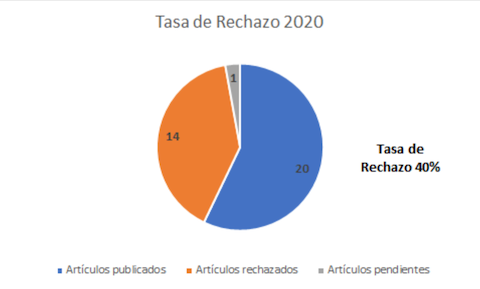Experimental validation model of Activ and Smca app’s for health-care
DOI:
https://doi.org/10.18667/cienciaypoderaereo.571Keywords:
Model, Validation, Experimental, Mobile applications, Healthcare.Abstract
The validation processes, over time, have become an essential requirement to comply with all research that develop instruments or devices for data collection. Therefore, validation models ensure that applications and devices are safe and effective because it verifies compliance with technical specifications at the international and national levels, this ensures the proper functioning and minimize the potential risks that arise during its use. In addition, the boom and adoption of information technologies in the medical-clinical field has generated validation problems, especially in App, which are elaborated by different software that does not validate its operation, suitability, effectiveness and safety before being marketed or loaded onto distribution platforms. This fact represents an enormous responsibility with the society, especially for the cases in which its use generates risks in the health of the users. The aforementioned arguments led the telemedicine research group of the Military University –TIGUM with the support of the research group on Health, Physical Activity, Art and Culture -ISAAC to develop an experimental validation model of the App called Activ and Smca , developed by TIGUM in order to promote the use of technology in health care. The tests were coordinated by the ISAAC group, individually for each volunteer who signed the informed consent, all volunteers performed a physical activity on the treadmill with five different speeds for 13 minutes measured heart rate and physical activity level. This model has a series of descriptive processes that evaluate different aspects of validation that the App used for health care must meet. It has been achieved the comparison of the data obtained from the applications with the data obtained from standard fitness equipment. The obtained results verified a deviation of p <0.05, which allows to determine that the proposed model is suitable to validate the Activ and Smca applications. This model can be used as a reference to validate other similar App when comparing the data generated by App with clinical / fitness devices.Downloads
References
Aguilar-Barojas, S. (2005). Fórmulas para el cálculo de la muestra en investigaciones de salud. Saluden Tabasco, 11(1-2), 333-8.
Alvarez , D., & López, L. (2014). AcTIV: Flerramienta móvil para la medición del gasto de energía. Proceeding II ENCUENTRO DE TECNOLOGÍA E INGENIERÍA & X SIMPOSIO INTERNACIONAL EN ENERGÍAS, (p. 76).
Cifuentes, Y., Beltrán, L, & Ramírez, L. (2015). Analysis of Security Vulnerabilities for Mobile FHealth Applications. In 2015 Seventh International Conference on Mobile Computing and Networking (ICMCN 2015). Los Angeles.
Cuartas, E., & Jailer, J. (2014). El Habeas Data como Derecho fundamental y la Ley 1581 de 2012 y su decreto 1377 de 2013. Medellin: Universidad EAFIT, Escuela de Derecho.
Del Águila, M., Vicente, S., del Castillo, L, & Sierra, M. (2007). Cómo elaborar un protocolo de Investigación en salud. Medicina clínica, 129(8), 299-302.
https://doi.org/10.1157/13109118
Kumar, N., Khunger, M., Gupta, A., & Garg, N. (2015). A content analysis of smartphone-based applications for hypertension management. Journal of the American Society of Hypertension. 9(2), 130-136. doi: http://dx.doi.Org/10.1016/jash.2014.12.001
https://doi.org/10.1016/j.jash.2014.12.001
López, L, & Alvarez, D. A. (2013). SMCa: Sistema de Monltoreo Móvil Cardiaco. Ciencia y Poder Aéreo, 8(1), 91-96.
https://doi.org/10.18667/cienciaypoderaereo.10
Magalhaes, J. (2011). Validado de modelos de estlmagáo do dispendio energético total com base na acelerometrla ten-do como referenda o método combinado de frequéncla cardíaca com sensor de movimiento. Unlversldade Técnica de Lisboa. Faculdade de Motrlcldade Humana. Recuperado de http://hdI.handle.net/10400.5/9010
Ministerio de Salud. (1993). Resolución 8430de 1993. Bogotá: Diario Oficial.
Mugarza, F. (2014). Informe apps salud en español, 1 Informe de las mejores 50 apps de salud en español. The App Intelligence, 4-8.
Portao, J., Bescós, R., Irurtia, A., & Cacclatori, E. (2009). Valoración de la grasa corporal en jóvenes físicamente activos: antropometría vs bioimpedancia. Nutrición hospitalaria, 24(5), 529-534.
Ramírez, L; Guillen, E; Cifuentes,Y. (2016). Estrategia de validación para aplicaciones móviles de salud. Actas de Ingeniería, 2, 325-333.
Ramírez, L, Jaimes, N., & Cifuentes, Y. (2016). Mobile technologies as a resource educational tool for the promotion of health education. ICERI2016 Proceeding, (págs. 7818-7826.). Sevilla- España.
https://doi.org/10.21125/iceri.2016.0792
Research2guidance's. (2015). mHealth App Developer Economics 2015. Recuperado el 10 de Diciembre de 2016, de http://research2guidance.com/r2g/r2g-mHealth-App-Develop-er-Economics-2015.pdf
Sáenz-Campos, D. (2005). Protocolos para Investigación clínica: aspectos prácticos para su preparación. Fármacos, 18,1-2.
San Mauro, I., Gonzalez, M., & Collado, L. (2014). Aplicaciones móviles en nutrición, dietética y hábitos saludables: análisis y consecuencia de una tendencia a la alza. Nutrición Hospitalaria, 30(1), 15-24. doi: https://dx.doi.org/10.3305/nh.2014.30.1.7398
Torres, S., Montoya , Y, & Ramos, R. (2014). Validación del desempeño de dispositivos médicos, una mirada desde la ingeniería btomédica. El hospital. Recuperado el 14 de Diciembre de 2016, de http://www.elhospital.com/temas/Validacion-del-desempeno-de-dlsposltlvos-medlcos,-una-mlrada-desde-la-lngenlerla-blomedlca+98928
Trlnchet Varela, C.,Trlnchet Soler, R., Chacón Ronda, A., & Méndez Fals,G. (2008). La experimentación: paso final y determinante para validar el proceso de Investigación científica en medicina. Acimed, 18(6), Recuperado de http://scielo.sld.cu/scielo.php?script=sd_arttext&pid=S1024-94352008001200013&Ing=es&tlng=es.
Downloads
Published
Issue
Section
License
Assignment of Copyrights
Authors assign Ciencia y Poder Aéreo journal the exclusive rights (reproduction, distribution, public communication, and transformation) to exploit and commercialize their work, in whole or in part, in all the formats and modalities of present or future exploitation, in all languages, throughout the life of the work and throughout the world.
All contents published in Ciencia y Poder Aéreo journal are licensed under a Creative Commons Attribution 4.0 International License, whose complete information is available at http://creativecommons.org/licenses/by/4.0/
Under the terms of this license, users are free to download, print, extract, archive, distribute and publicly communicate the content of articles, provided that proper credit is granted to authors and Ciencia y Poder Aéreo, scientific journal of the Graduate School of the Colombian Air Force. Except when otherwise indicated, this site and its contents are licensed under a Creative Commons Attribution 4.0 International License.
For other uses not considered under this license it is required to contact the Director or the Editor of the journal at the e-mail address cienciaypoderaereo1@gmail.com.
The Graduate School of the Colombian Air Force and this publication are not responsible for the concepts expressed in the articles, including the metadata or the affiliation stated by authors. This is the full responsibility of the authors.






















